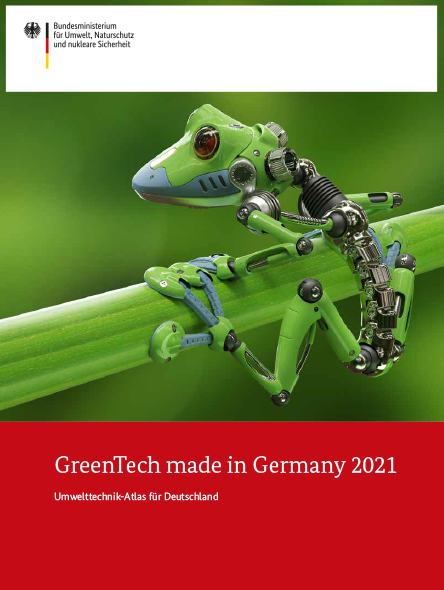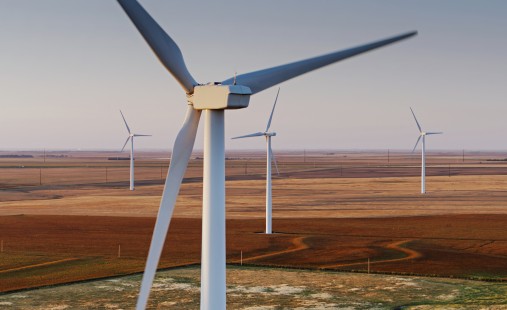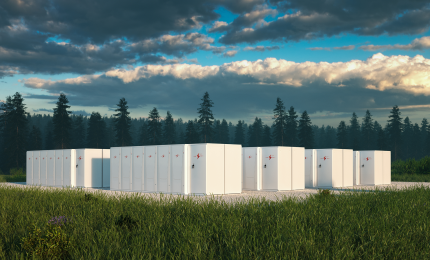Roland Berger is a thought leader in environmental issues and the response demanded from organizations. Our publications cover all relevant areas.


Green tech industry remains on course for growth
Global market volume exceeds 4 trillion euros for the first time in 2020
The green tech industry is growing. Indeed, its growth has continually outpaced predictions. The latest edition of the "GreenTech made in Germany 2021" Environmental Technology Atlas indicates that the sector's global market volume has just exceeded the 4 trillion euros mark, coming in at around 4.6 trillion euros this year. Future prospects are also positive, with global revenues in environmental technology and resource efficiency set to reach 9.4 trillion euros by 2030, equivalent to an average annual growth rate of 7.3 percent.
In a particularly positive trend, the German industry is performing even more dynamically than the sector's global development, with the market volume in Germany reaching 392 billion euros in 2020. By 2030, the domestic market's total volume is set to more than double to 856 billion euros. That's equivalent to average growth of 8.1 percent per year.

Energy efficiency remains the biggest lead market
With a volume of 117 billion euros, energy efficiency is the biggest of the seven lead markets, followed by sustainable mobility at 91 billion euros. Germany's energy revolution is having a strong impact on the lead market for environmentally friendly power generation, storage and distribution. Besides growth in photovoltaics and wind power as renewable energy sources , stationary storage technologies in the form of batteries and hydrogen will add momentum to the market in the coming years. The anticipated growth rate in this lead market is 8.5 percent p.a. in the period to 2030.
Within the lead market for sustainable mobility, demand is evidently shifting away from efficiency technologies and towards electric mobility. Alternative drive technologies are accelerating at by far the fastest pace. Forecasts indicate that this market segment is expected to grow at an average rate of 13.3 percent p.a. between 2020 and 2030, by which time it will have reached around EUR 620 billion (up from EUR 34 billion in 2016).
Sustainable water management is also a matter of increasing importance. Population growth, rising water consumption and increasing pollution generate a continuous high demand and will cause the global market volume to surpass one trillion euros by 2030. More efficient water utilization is the area where the greatest potential is to be found, with the average growth rate anticipated to exceed 21 percent p.a. through 2030.
Stable and resilient growth – even during the pandemic
The companies surveyed for the latest edition of the Atlas anticipate average annual growth of 9.9 percent in the period to 2025. Suppliers from the lead markets of sustainable mobility and energy efficiency anticipate the strongest growth, with an average expected revenue uplift of 12.9 percent per year through 2025.
Employee numbers will also continue to rise in the coming years, with companies in Germany expecting the size of their workforce to increase by 6.8 percent on average every year until 2025.
All of which goes to show how resilient the German green tech industry is, even under difficult conditions. In an online survey of around 400 companies conducted in the spring of 2020, almost half of suppliers evaluated their current business situation as satisfactory, with 37 percent even rating it as good. Looking ahead, the negative impact of Covid-19 on the green tech industry is predicted to be considerably lower than on the economy as a whole: Whereas almost 40 percent of respondents expect the economy as a whole to face massive challenges due to the pandemic, only 17 percent of suppliers in the environmental technology and resource efficiency industry think that the same applies to their own sector.
Fundamental economic importance of the sector for Germany
Even though the rise in international competition is continuing unabated (particularly with suppliers from the United States and China entering the fray), German suppliers have so far been able to successfully defend their position on the global market. Green and resource-efficient products, technology and services "made in Germany" are highly esteemed worldwide and are responsible for the strong export performance of Germany's green tech sector: While Germany's share of global economic output is around 3 percent, German green tech companies account for some 14 percent of the sector's global market, with Europe being the biggest sales market. But alongside Russia and China, other countries including Brazil, Mexico, Canada, Japan and South Korea are also becoming increasingly important export destinations.
Competitive costs are the basis for future success
For German companies operating in this sector, retaining their good position in the domestic and international markets will be the big challenge in the upcoming years. To do so they will need not only innovative products but above all a competitive cost structure. In product development, it will be essential to keep development costs, product design as well as manufacturing costs and material costs constantly optimized. And process costs in purchasing, logistics, sales and energy supply will have to be reduced at the same time. That is why digitalization, process efficiency and a strict focus on value creation are among the most pressing challenges for the industry as players strive to remain competitive long term .
Environmental technology and resource efficiency, aka green tech, is a classic cross-sectoral industry. In the latest edition of the Environmental Technology Atlas, a publication that Roland Berger has written and updated on behalf of the Federal Ministry for the Environment, Nature Conservation and Nuclear Safety for the past twelve years, seven lead markets are described in detail, along with their respective market segments and technology lines. These include environmentally friendly power generation, storage and distribution, energy efficiency, material efficiency, sustainable mobility, waste management and recycling, sustainable water management, and sustainable agriculture and forestry.
Green tech industry remains on course for growth
Green tech from Germany is in demand throughout the world: For instance, the German share of global economic performance is 15 percent.






